Music is a cornerstone of most of our lives. With a tune for every mood, it is hard to imagine life without it.
It is common to see people training with their earphones in while running, bodybuilding, or skateboarding – completely focused and in their own world.
But what about surfing? Can you listen to music while surfing?
With waterproof mp3 players, iPods, and headphones, listening to music while surfing is very possible.
Not only is it possible, but there have been years of research on how listening to music while training can have significant benefits.
The following article will discuss the benefits of listening to music while surfing, the dangers of doing so, and how exactly it can be done.
- How Can You Listen to Music While Surfing?
- What are the Benefits of Listening to Music While Surfing?
- The Dangers of Listening to Music While Surfing
- Conclusion
- You Might Also Like…
Disclosure: this post contains affiliate links (clearly marked with ), which means we may earn a commission if you buy something through them, at no additional cost to you.
How Can You Listen to Music While Surfing?
When it comes to listening to music while surfing, you need two things:
- a waterproof mp3 player or iPod
- a waterproof speaker or headphones.
Whichever you choose, your device of course needs to be waterproof and should float or be firmly attached to yourself or your board.
1. Waterproof Speakers for Surfing
If you opt to use a waterproof speaker, there are a few pros and cons involved.
Speaker Pros
On the pros side, you will be free to move around, with no cables attaching yourself to any device.
Having earphones may be annoying for some people when they surf as the freedom to turn your body and your head in a split second is necessary when surfing bigger waves or an unclean break.
Another major pro of using a waterproof speaker while surfing is that you will not cancel out all the surrounding sounds with your music.
This can be important when surfing at a crowded spot, or when there are lifeguards and shark sirens that need to be paid attention to.
Speaker Cons
The cons of using a speaker when surfing could possibly outweigh the pros.
Surfing is a very personal sport and playing your music in the backline could be annoying to some, and make others downright angry.
If you want to use a speaker you should always ask the other surfers in the water first.
Another downside of a speaker is that when duck diving while making your way past the break, you will not hear the music clearly.
Water disrupts the sound and this may disturb the rhythm you have set for yourself.
Lastly, losing your rather expensive piece of equipment in the ocean can be a real mood destroyer.
Because speakers are usually connected to your board, there is always the risk of them detaching.
For this reason, using a waterproof speaker in rough surf is not recommended.
What Waterproof Speaker Is Best for Surfing?
If you are facing smaller waves on a beautiful sunny day with only your friends in the water, then a speaker could be the perfect option.
There are multiple waterproof speakers on the market, but the Wonderboom 2 comes highly recommended.
The reason this speaker is so amazing is not only because it’s very lightweight and portable.
But also because it can take a beating (literally), as it is drop-proof, dust-proof, waterproof and floatable – qualities which make it ideal for surfers.
2. Waterproof Headphones for Surfing
Your second choice when taking your tunes into the water is of course headphones.
If you want to escape from the noise of the outside world this can be the perfect option.
Waterproof headphones are an amazing invention and can aid in your surfing endurance and flow, but there are some pros and cons that are worth thinking about.
Headphones Pros
Perhaps the main positive of using headphones over speakers while surfing is that you will not disturb other surfers.
As mentioned above, surfers can be very touchy at times, so keeping your music to yourself is usually the best route to take.
Another upside is that they will be much more secure. Because they are small and attached to your body, there is little chance of them being lost.
Headphones Cons
Communication is important while surfing, and having headphones in can disrupt that.
Not being able to hear others around you can – although sometimes feel good – be dangerous.
Headphones can damage your ears if you duck dive too deep.
Although this is not usually a risk, swimming deep under a wave with headphones can damage your eardrums.
The increased pressure from the water with the sound waves from the music can be a nasty combination.
It is for this same reason that scuba divers do not listen to music while diving.
Lastly, and the least of your worries, is that unless you have headphones that store music, you will need to take a second device with you into the water.
This is usually easily stored inside your wetsuit – safe, and secure.
What to Look for In Waterproof Headphones for Surfing?
There are hundreds of waterproof headphones on the market, all of which claim to be the best.
It does not matter which brand or set you get, as they will work the same on the most part.
However, when choosing a set of waterproof headphones, there are a few things that they should entail:
- They should be waterproof (obviously).
- They should secure around the back of your neck or onto your wetsuit in some way.
- Bluetooth headphones are good, but there should still be a connection between each bud as well as your body.
- If you use headphones with a cable, the cable should be short. This prevents tangling.
- The headphones should not be noise canceling. It is always important to have a sense of what is going on around you when surfing.
What are the Benefits of Listening to Music While Surfing?
Riding a wave is not only a fun part-time sport. Surfing can be and is usually an intense workout.
Exerting both your aerobic and anaerobic systems, surfing can be compared to the likes of running, cross-fit, and swimming.
It is for this reason that listening to music while surfing can be so beneficial.
Laird Hamilton, American born big wave surfer and one of the founders of tow-in surfing, says that listening to music while surfing creates “a whole other situation that you don’t have when you’re not listening to music”.
Hamilton explains how listening to music while surfing seems like it activates a whole new side of his brain, making everything slow down, which gives him a sense of more time when doing maneuvers.
However, it is not just Laird Hamilton that can show the benefits of music while surfing.
Studies have long shown how listening to music while exercising is beneficial.
1. Music Improves Rhythm and Flow
Studies have shown that listening to music that matches the rhythm of your workout will help you synchronize with the beat.
Matching the beats per minute with your surfing will aid you in getting into a rhythm when carving the waves and paddling through difficult surf.
This is one of the reasons that listening to music when running or cycling helps you stay in stride, which in turn allows you to use less energy.
2. Listening to Music Improves Endurance
Listening to music has been shown to directly correlate with stamina and endurance.
A 2006 study looked at runners and how their distance and speed increased when listening to fast tempo music.
The same study showed that when these runners were listening to music they not only ran further, but were found to be less tired from the effort.
Sports psychologist C.I. Karageorghis states in a study done in 2010 that music can improve athletic performance in two main ways: it can decrease fatigue or increase capacity.
3. Music has a Psychological Effect
We all know the feeling of listening to our favorite song and instantly feeling a mood boost.
Music can stimulate feelings of pleasure or displeasure and can lead to changes in behavior.
One study showed that when individuals listen to music they found to be “pleasing” they experienced higher levels of serotonin.
Taking this into the water can greatly affect your surf experience.
Whether it is because you are facing conditions that are slightly scary to you, or if you are simply waiting in the back for the next set: music can aid in turning the impatience and anxiety into a fully enjoyable moment.
The Dangers of Listening to Music While Surfing
It is one thing to know all the positives you can find from listening to music while surfing, but it is always important to understand when something might go wrong.
Surfing is dangerous, and not being aware of your surroundings can make it worse.
There are two main downsides of listening to music when hitting the waves. They include not being able to hear other surfers in the water and feeling too comfortable.
1. You Can’t Hear Other Surfers
Although surfing is an individual extreme sport, communication is still important.
Respecting other surfers should always be at the top of your priority list.
One of the most disrespectful things you can do in the water is drop in on another surfers wave.
Even if this is not done on purpose, if it does happen, the surfer behind you will usually give you a shout, which will allow you to kick out of the wave and let them cruise on by.
If you are listening to music when this happens you will likely not hear them.
This could result in either a collision or an angry local. Both of which could lead to a personal injury on your behalf.
2. You Become Overconfident
On the other hand, because music can be calming and ease anxiety, listening to music in conditions that are bigger or rougher than you are used to could lead to problems.
Because you have a higher level of confidence, it is possible to get yourself into a situation that you were not prepared for.
It is important to take note of the water conditions and decide if they are right for you before you plug in your headphones and head out to sea.
Conclusion
With waterproof speakers, headphones, and mp3 players, it is possible and very easy to listen to music while surfing.
Doing so can greatly improve your endurance and flow in the water, thus leading to a longer and more successful surf session.
However, you should always keep in mind that being aware of the environment and other surfers around you is more important than listening to your favorite song.
Before you take your music into the water with you, you should always consider the dangers it could bring before you consider the advantages.
You Might Also Like…
-

Do Surfers Ride Switchfoot? 5 Benefits (& Why You Should Learn It)
-

Do Surfers Shave Their Legs? 5 Common Reasons (+Pros & Cons)
-

Do Surfers Wear Helmets? 8 Situations You Should Wear One (+4 Cons)
-

Do Surfers Poop in the Ocean? Myths & Facts (+5 Tips)
-

Do Surfers Run Into Each Other? 5 Common Reasons (+8 Tips)
-
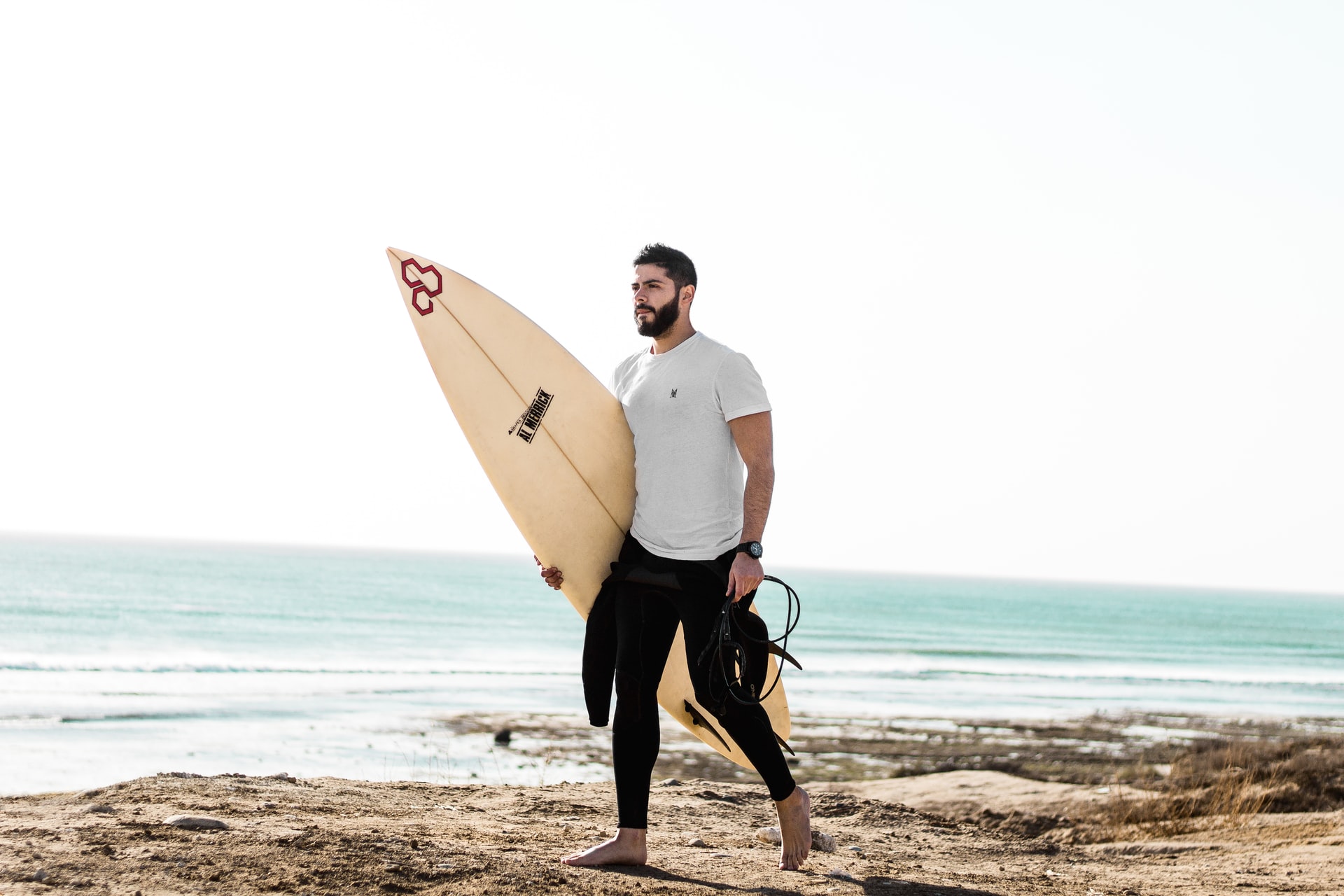
Do Surfers Have Beards? Pros & Cons You Should Know (+4 Tips)
-
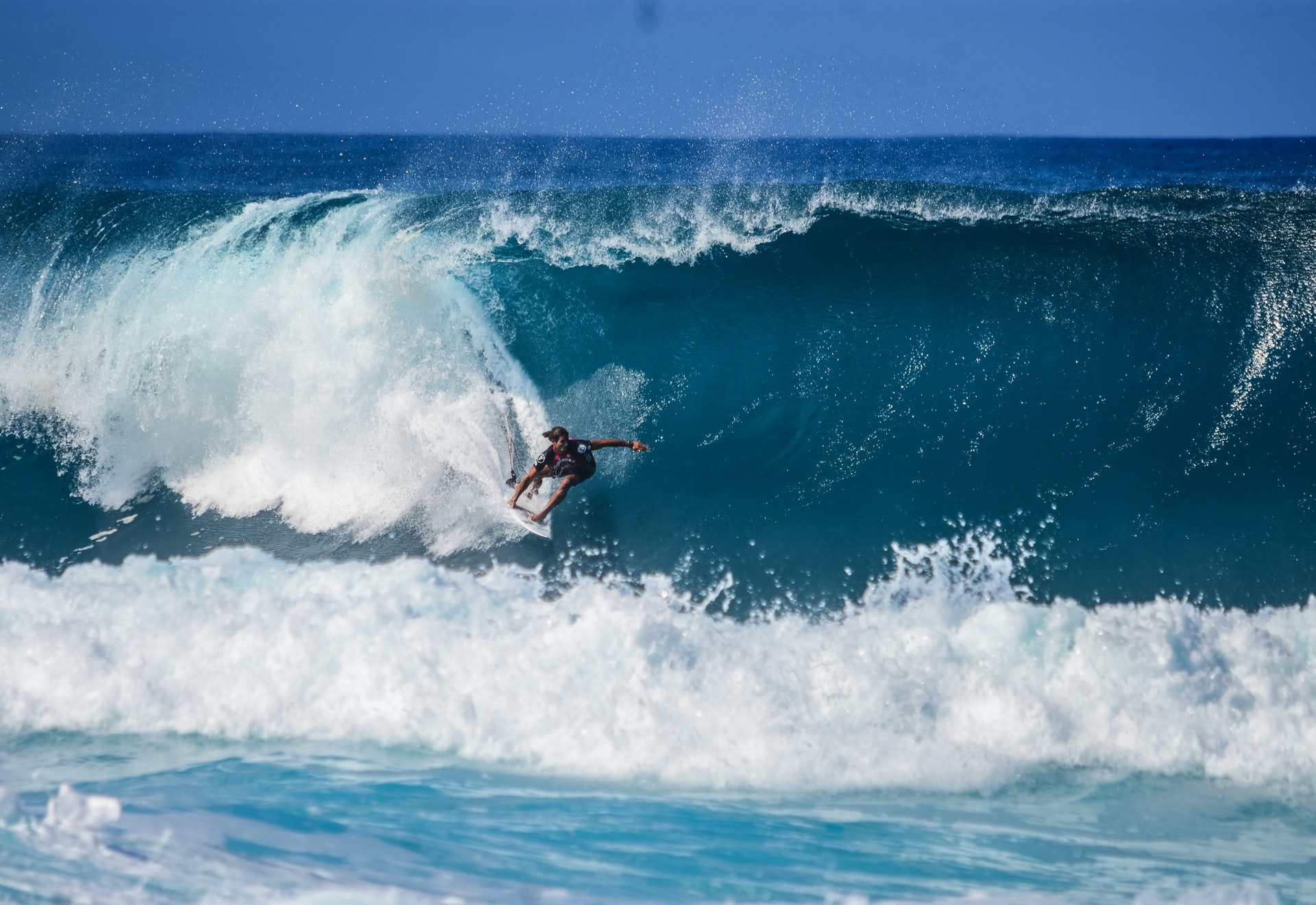
Do Surfers Like Constructive or Destructive Waves? (+Pros & Cons)
-

How to Surf Safely: 34 Crucial Tips (Every Surfer Should Know)
-
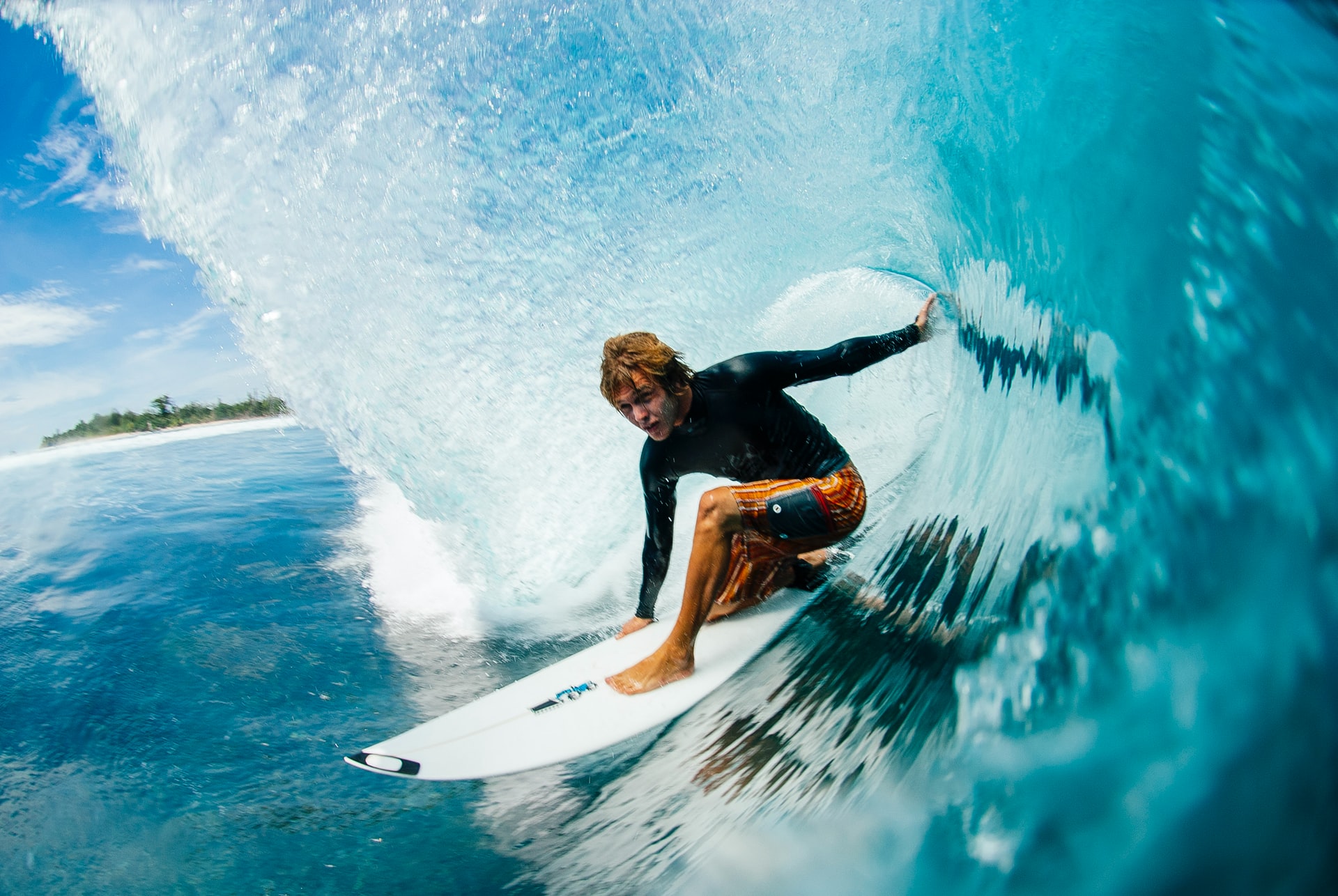
Do Pro Surfers Use Leashes? (+6 Reasons Why You Should Too)
-
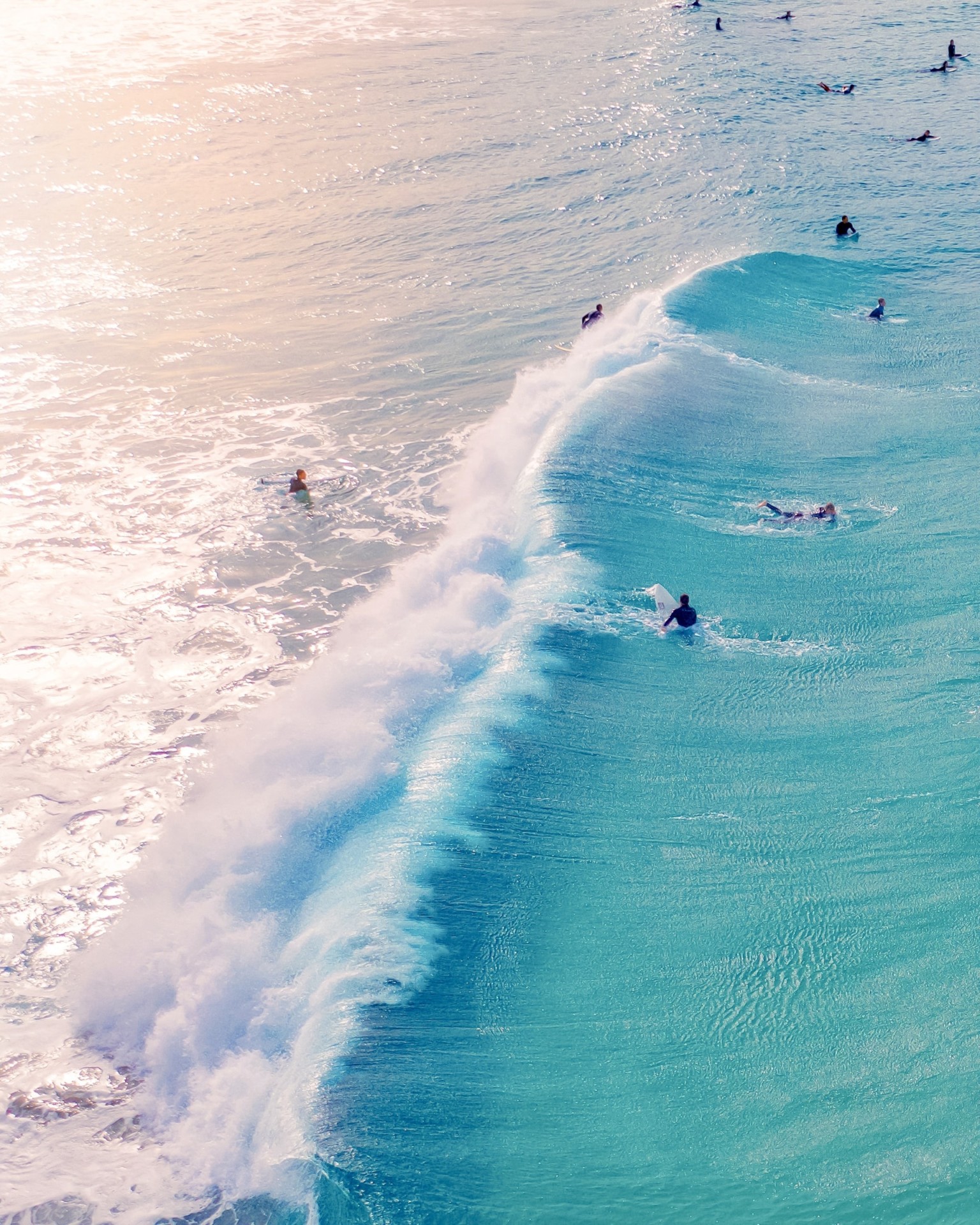
Do Many Surfers Drown? Here Are the Facts (+4 Common Reasons)
-
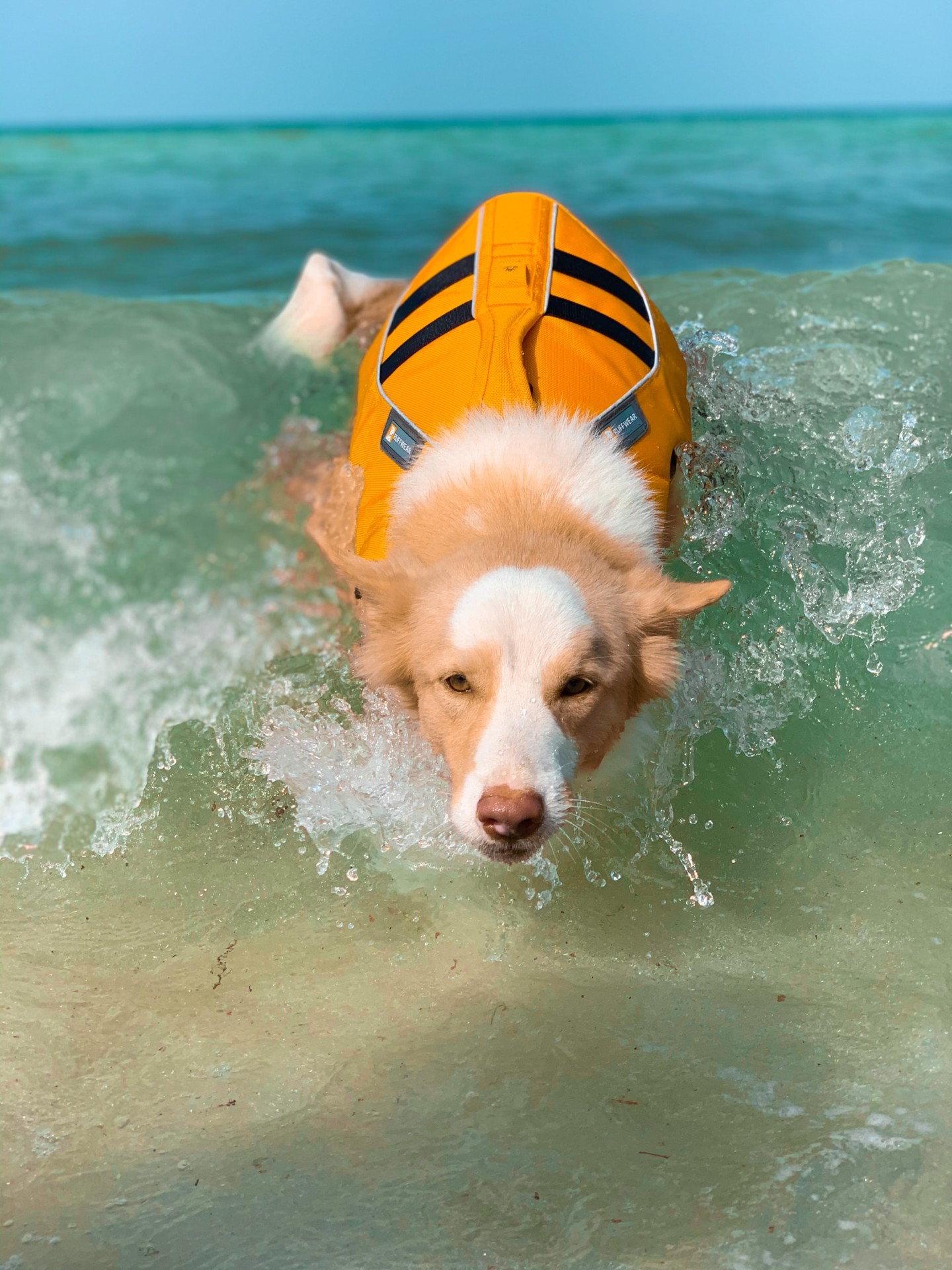
Do Surfers Wear Life Jackets? (7 Reasons Why They Don’t)
-
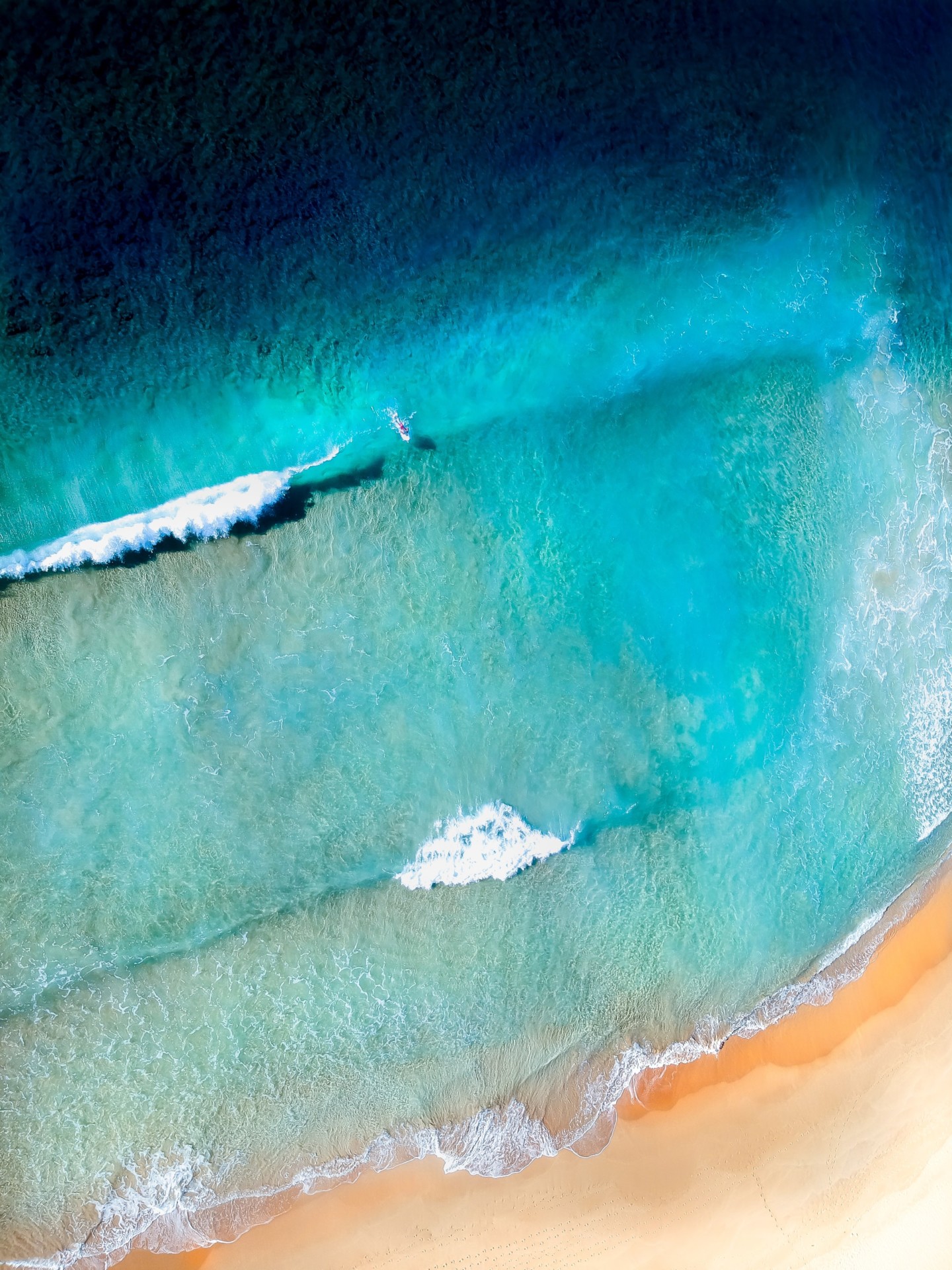
Do Surfers Like Rip Currents? (& How to Use Them Safely)







